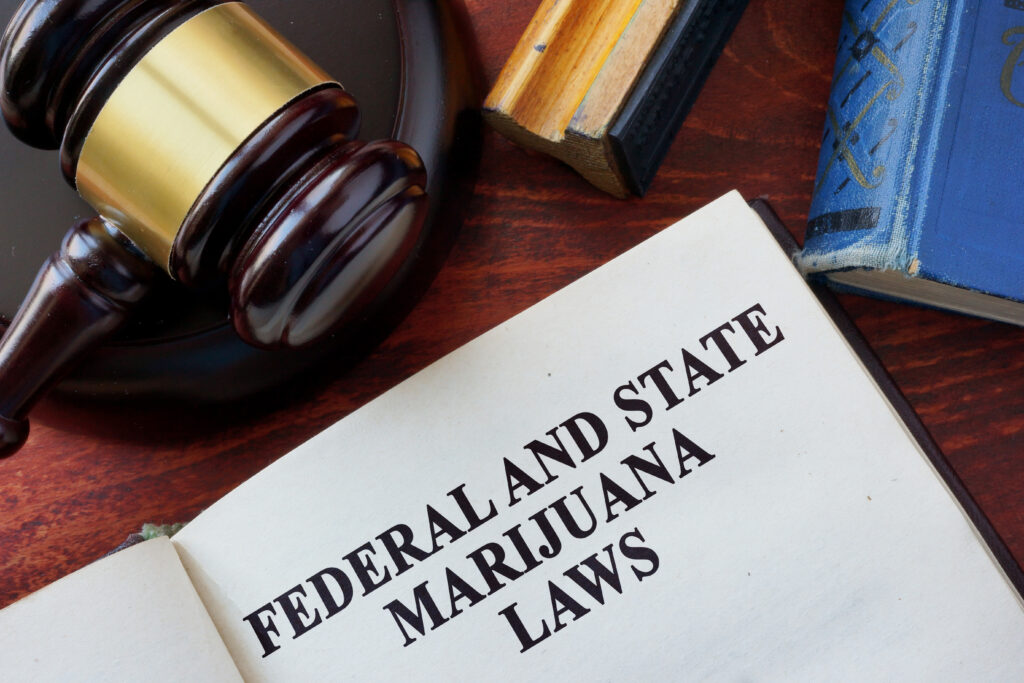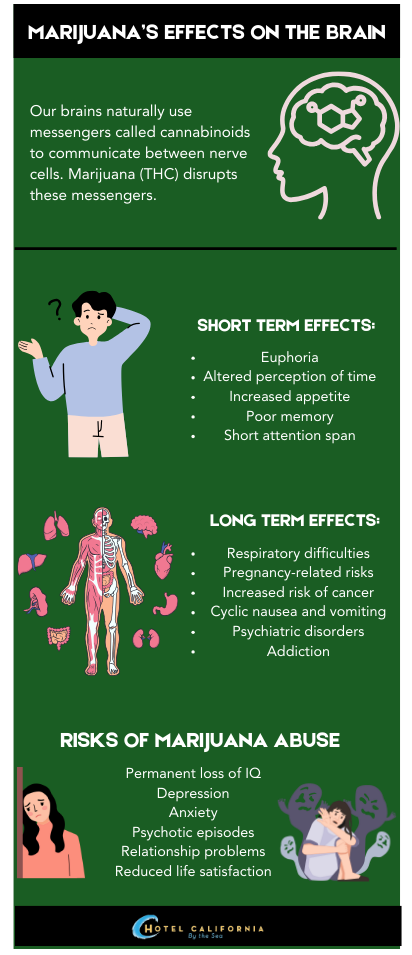Federal Scientists Recommend Easing Restrictions on Marijuana
The Biden administration is proposing a move to reclassify marijuana and ease up on federal restrictions on the substance. The proposal would change the classification from a Schedule I controlled substance to a Schedule III controlled substance, labeling it a less dangerous drug. This reclassification will be a first for the substance since the Controlled Substances Act was enacted more than 50 years ago. The U.S. Drug Enforcement Administration is expected to approve of the reclassification by the current administration and recommendation from the Department of Health and Human Services. The move won’t legalize marijuana at the federal level; it will just reconsider the classification of the drug.
This move comes based on the recommendation from federal scientists believing the change can lift restrictions in order for the substance to be further studied. It will also be the first time the U.S. government has acknowledged marijuana’s potential for medical purposes. Scientists believe there is now more credible evidence showing some medical benefits of cannabis saying it poses a much lower health risk compared to other controlled substances.

Marijuana is currently classified as a Schedule I substance, which is considered a substance with no acceptable medical use and a high potential for abuse. Marijuana has been in the same category as heroin, meth and LSD since 1971. Schedule III category is comprised of substances that acknowledge some medical benefits with less potential for abuse and low risk of dependency. Such drugs include Tylenol, codeine, steroids and testosterone. Schedule III drugs can be legally prescribed by health care providers and dispensed by pharmacies.
The reclassification of cannabis was suggested by the Biden Administration back in October of 2022. The lengthy process will consist of a review by the White House Office of Management and Budget, undergoing a public comment period and a review from an administrative judge. According to a Pew Research poll, almost 6 in 10 Americans believe marijuana should be legal for medical and recreational purposes. The substance is currently legal for recreational use in 24 states. However, there are still no federal regulations on the drug.
What is Marijuana?
Marijuana is a mind-altering, psychoactive substance. It refers to the dried leaves, flowers, stems and seeds derived from the cannabis sativa or cannabis indica plant. Cannabis contains chemical compounds such as THC and CBD, which can produce psychedelic effects. According to the National Survey on Drug Use and Health, cannabis is one of the most used substances in the U.S. and is the most popular among young people.
According to the National Institute on Drug Abuse, there have been no reported deaths from a marijuana overdose. Despite its popularity, marijuana isn’t without health risks. A recent study in the Journal of the American Heart Association found that cannabis smoke isn’t much different from tobacco smoke. The harmful effects of inhaling toxic particles into the lungs can have long-term and detrimental effects on respiratory health. It can also increase heart rate, which in turn increases the chances of a heart attack. In addition to the physical impact of marijuana use, mental health can also be affected.

Short Term Effects
- Altered sense of time and enhanced sensory perception
- Heightened imagination
- Changes in mood
- Impaired body movements
- Difficulty thinking and problem-solving
- Impaired memory
- Increased appetite
Long Term Effects
- Time distortion
- Impaired judgment
- Affects brain development, especially in young people and young adults whose brains are still growing and developing. It can cause permanent IQ loss for some
- Breathing problems, especially when the method of administration is through smoking and inhaling
- Increased heart rate
- Hallucinations and delusions
- Paranoia and psychosis
- Worsening symptoms of mental health
Check Your Insurance Coverage for FREE
Find out if your insurance covers addiction treatment in minutes. We accept most insurance!
The Impact of Easing Restrictions on Marijuana
The current schedule of the drug imposes many restrictions and regulations on scientist’s and researchers ability to study the substance. This is true even in states where the substance is legal for medical and recreational purposes. If more research can be done, there will be more potential for insight and understanding of the benefits and risks of cannabis use.
As a current Schedule I controlled substance, conducting authorized clinical studies on marijuana is extremely difficult. A less restrictive regulation on the drug could improve the quality of research compared to the limited data available today. More research and data on cannabis could help scientists identify more concrete medical benefits and pave the way for pharmaceutical companies to help set safety regulations for the sales and distribution of the substances in states where it is legal.
The reclassification of marijuana could also provide some financial incentives. The cannabis industry is an estimated $34 billion dollar industry. Making the drug less restrictive could help eliminate significant tax burdens for businesses in states where the drug is legal. It can also help to decrease black market sales. Despite legalization in many states, the cannabis black market continues to thrive and financially take away from legal businesses that are regularly and heavily taxed.
What opponents and advocates are saying about this proposal
In a nationwide survey from the Coalition for Cannabis Rescheduling Reform, data found that an estimated 60% of voters supported the rescheduling of marijuana to a less restrictive class of substances. Advocates believe the reclassification could allow for more informed and intelligent conversations to be had about the substance. Others believe it should be completely removed from the Controlled Substances list such as alcohol or tobacco.
However, the new proposition won’t fully address all the issues surrounding the cannabis industry. There may still be inconsistencies between state and federal restriction for medical and recreational use. In addition to that, different states have their own rules and regulations on the substances, making it vary from place to place.
Those who oppose the changes believe it will send a message that marijuana is less addictive and dangerous, when in fact it can still lead to dangers such as psychosis and other mental health disorders.
Reach out to Hotel California by the Sea
We specialize in treating addiction and other co-occurring disorders, such as PTSD. Our Admissions specialists are available to walk you through the best options for treating your addiction.
Treatment for Marijuana Use Disorder
Reclassifying marijuana as a less restrictive substance could cause a change in attitude towards the drug. Very limited information is still known about the substance due to the restricted ability to study its effects and potential benefits. A move towards a lower classification could help foster new information and ideas that will affect public health and the economy. Rescheduling marijuana may also have very little impact on the 24 states that have already legalized recreational and medical use for adults. However, advocates are hoping this new move can help sway opinions about the drug and clear a path for legalization on a federal level.
Marijuana is a psychedelic substance with a risk for abuse and addiction. Professional drug and behavioral health programs offer the support, knowledge and medications known to help treat substance use disorders such as an addiction to marijuana. Hotel California by the Sea provides professional care for people in all stages of marijuana addiction and recovery.
We provide medical detox, inpatient residential, partial hospitalization programs and intensive outpatient programs. In addition to medication-assisted treatments, we also provide individual and group therapies such as CBT, DBT and family therapy. The combination of different types of treatment can help treat co-occurring mental health conditions associated with marijuana addiction. Hotel California by the Sea is dedicated to providing sustainable solutions to help our clients overcome their addictions.
References:
https://www.usatoday.com/story/news/nation/2024/04/30/dea-reclassifies-marijuana-reports/72865632007
https://nida.nih.gov/publications/drugfacts/cannabis-marijuana
